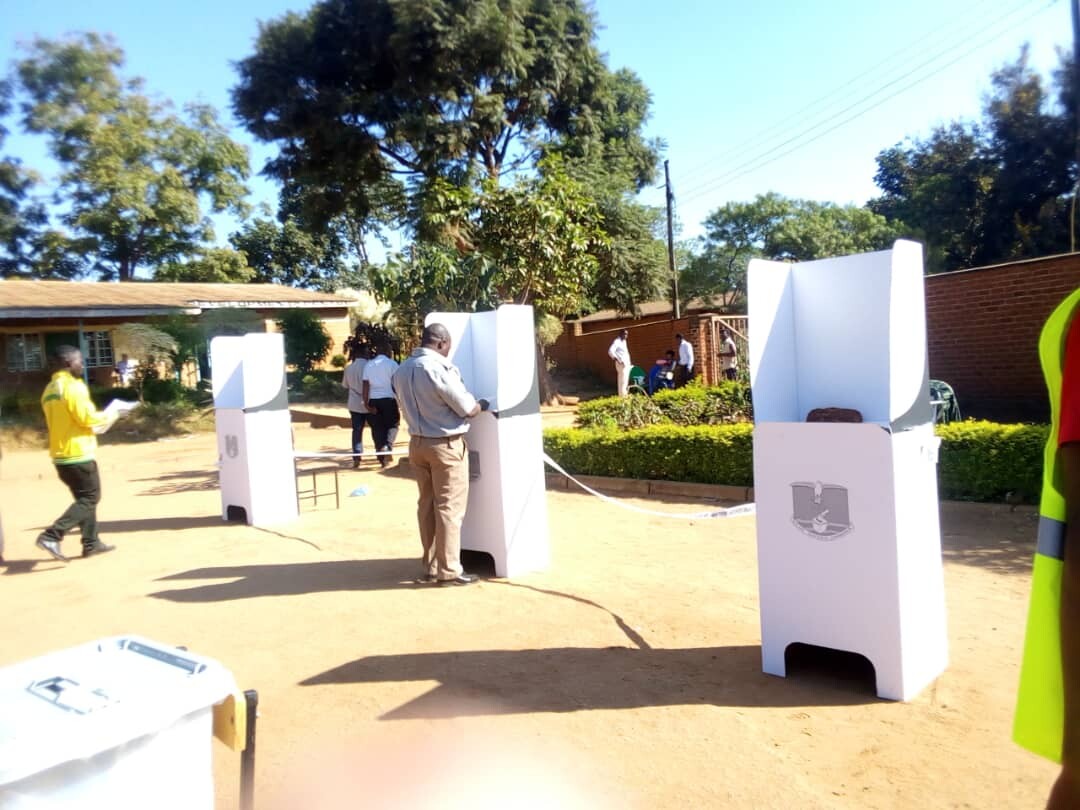
The Malawi Electoral Commission (MEC) has strongly defended its decision to award a major election technology contract to Smartmatic International Holding B.V. for the upcoming 2025 Tripartite Elections. This follows intense criticism from key opposition parties.
The controversy surfaced during an October 16 press conference, during which the Democratic Progressive Party (DPP), UTM, and the Alliance for Democracy (AFORD) voiced serious concerns about Smartmatic’s past performance and the procurement process used.
Smartmatic’s selection has raised eyebrows due to its controversial history in several developing democracies. The company has faced allegations of electoral irregularities in countries like Venezuela, Kenya, and the Philippines – claims that MEC Chairperson Justice Annabel Mtalimanja directly addressed in her response.
“We conducted extensive due diligence, including site visits to Smartmatic’s assembly facilities and consultations with other nations using their systems,” Mtalimanja explained. “Our investigations found no solid evidence to support any claims of interference or manipulation.”
The MEC revealed that Smartmatic became the sole remaining bidder after two other companies – Aratek from Taiwan and Miru Systems from Korea – withdrew from the bidding process. Despite the lack of competition, the Commission insists that the procurement process followed all legal guidelines.
“Every step was conducted under the oversight of both the Public Procurement and Disposal of Assets Authority and the Anti-Corruption Bureau,” Mtalimanja emphasised. “Their clearance confirms the integrity of our procurement process.”
MEC officials also noted that the ageing election infrastructure was a key reason for selecting a new provider. The current Biometric Voter Registration kits, developed with UNDP support, no longer meet the Commission’s needs for modern election management.
The new system is expected to offer several improvements, including:
advanced biometric voter management, streamlined results transmission and
enhanced data security protocols.
Despite these assurances, opposition parties remain sceptical. A spokesperson from the DPP highlighted their broader concerns: “The issue isn’t just about Smartmatic. We must ensure that all stakeholders have full confidence in the electoral system.”
The DPP has called for independent ICT auditors to assess the proposed system – a request that the MEC has responded to positively.
As the 2025 elections approach, this controversy underscores the broader tensions surrounding Malawi’s electoral preparations. The MEC has committed to continuing dialogue with political stakeholders while pushing forward with its efforts to modernise election infrastructure.
“Our top priority is to deliver credible, transparent elections,” Mtalimanja stated. “We welcome constructive discussions with all parties to achieve this goal.”
Political analysts suggest that this dispute could have a significant impact on public confidence in the upcoming elections, making it a key test for Malawi’s democratic institutions.
Smartmatic’s selection has drawn attention due to its controversial history in several developing democracies. The company has faced allegations of electoral irregularities in Venezuela, Kenya, and the Philippines – claims that MEC Chairperson Justice Annabel Mtalimanja directly addressed in her response.
“We conducted extensive due diligence, including site visits to Smartmatic’s assembly facilities and consultations with other nations using their systems,” Mtalimanja said. “These investigations found no substantiated evidence supporting allegations of interference or manipulation.”
The Commission revealed that Smartmatic emerged as the sole remaining bidder after two other companies, Aratek (Taiwan) and Miru Systems (Korea) – withdrew from consideration. Despite the limited competition, MEC maintains that the process met all legal requirements.
“Every step was conducted under the oversight of both the Public Procurement and Disposal of Assets Authority and the Anti-Corruption Bureau,” Mtalimanja emphasised. “Their clearance validates the integrity of our procurement process.”
MEC officials pointed to the obsolescence of current election infrastructure as a key driver behind the procurement decision.
The existing Biometric Voter Registration kits, developed through UNDP support, no longer meet the Commission’s requirements for modern election management.














